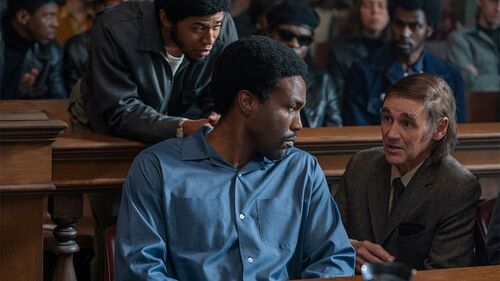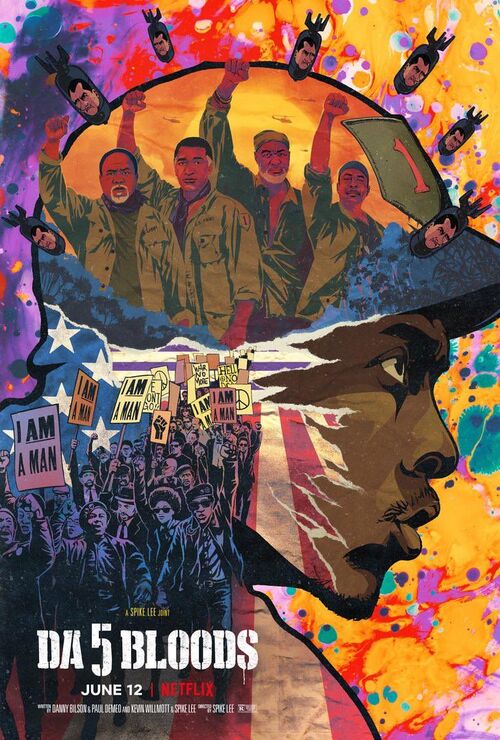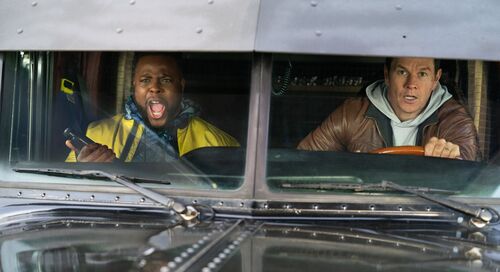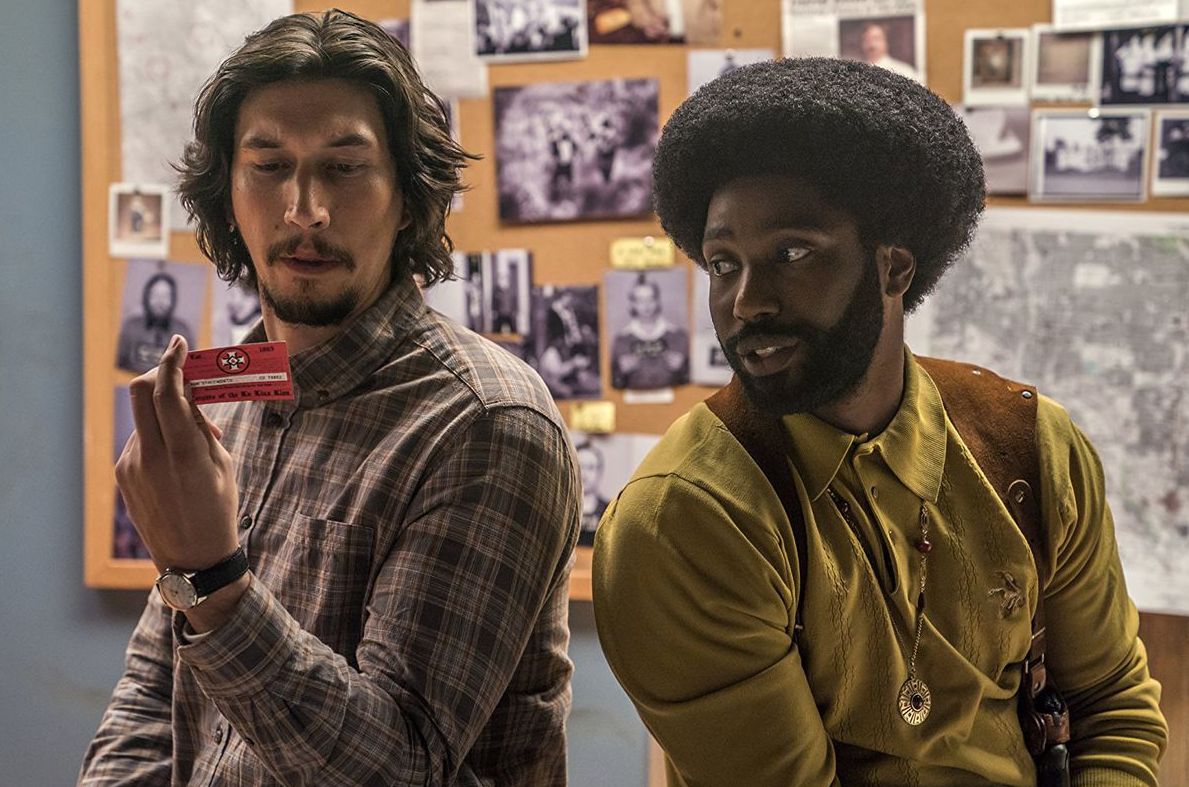
‘BlacKkKlansman’ Review
 Spike Lee is in top form for his latest joint,‘BlacKkKlansman’, and America seems to have caught up with his alarms and rhetoric on race some 30 years after 'Do The Right Thing'. It’s a shame it took a toxic mass of agent orange in a Three Piece Suit for it to hit home.
Spike Lee is in top form for his latest joint,‘BlacKkKlansman’, and America seems to have caught up with his alarms and rhetoric on race some 30 years after 'Do The Right Thing'. It’s a shame it took a toxic mass of agent orange in a Three Piece Suit for it to hit home.
‘BlacKkKlansman’ was the closing film screened at Ghana’s Black Star International Film Festival. For all the laughs and cheers Lee serves up, his masterful and passionate touch meant a sense of Afro-Pessimism weighed heavy in the room.
The Pew Research Centre notes that 41 percent of my Ghanaian brethren would sell an arm to jump ship to the US. But the post-screening-discussion saw African Americans speak of why they left the US for Ghana, some over a decade ago. For some, they didn't need reminding.
This the almost-universal conundrum of the black experience, as outlined in Djibril Diop Mambety’s totem of African cinema, ‘Touki Bouki’. On a micro level in ‘BlacKkKlansman’ this Afro-pessimism manifests itself in our protagonist, who is a black man torn between a murky police force and his black kin.
The story presents one of those "truth is stranger than fiction premises"; a black man joins the Ku Klux Klan, according to the memoirs of Ron Stallworth, an ex-detective, who was the first African-American hired by a Colorado Police Department in the 1970s. Ron ( played here by John David Washington), who was a rookie detective, and his white and Jewish partner, Flip Zimmerman (Adam Driver), infiltrate a Colorado chapter of the hate organization in quite ludicrous fashion.
Ron responds to a Klan ad in the newspaper over the phone with a “white voice” and farcically declares his hate for all non-white people and the genetic superiority of the white race. Flip has to do groundwork, for obvious reasons, when Ron is invited to meet the Klan chapter members. Ron goes as far as even engaging the Klan’s Grand Wizard David Duke (Topher Grace) on phone in some of the film’s most hilarious moments.
There are ample avenues for tense moments as the film rolls on. Flip is the one with his neck on the line and Lee spices in moments of dread when the undercover cop routinely breaks bread with Klan members who look like average joes but are unquestionably dangerous because their prejudices have been harnessed into something sinister.
Lee does a great job of melding a certain benign and laughable domesticity with pure evil. One the more vociferous Klan member’s wife looks like she gives great hugs and bakes rosy pies but she is so eager to do her part, so much so she is willing to blow up a gathering of black university students because of the color of their skin.
There are no prizes for guessing were the true stakes lie for Lee. Hate and those who wield it are the enemies. His desire to make the audience conscious is bursting forth the screen even before the plot kicks in. Ron is picked for the undercover unit is to spy on a gathering of black activists where the firebrand Kwame Toure is scheduled to speak. And speak he does; putting forth a timeless message infused with negritude sentiments and barbs towards a racist system.
It’s clear Ron is only on the mission because of the color of his skin. But it’s a first step in some soul searching from him and the audience. He also gets to meet the fierce uncompromising Patrice (Laura Harrier) who is a student leader and a rallying force. Ron catches feelings her and begins his second undercover mission as a guy who would rather relate to Patrice and other blacks as a construction worker rather than a cop, or a pig, as they call them.
This is yet another layer of Afro-pessimism which constricts the well-fleshed character of Ron. He has always wanted to be a cop. He believes in the law doing its work, not black leather jackets and militant activism. But this belief is a far cry away from the force we actually spend time with; a force that has even the “good” ones afraid to out overtly racist cops who target and kill black people.
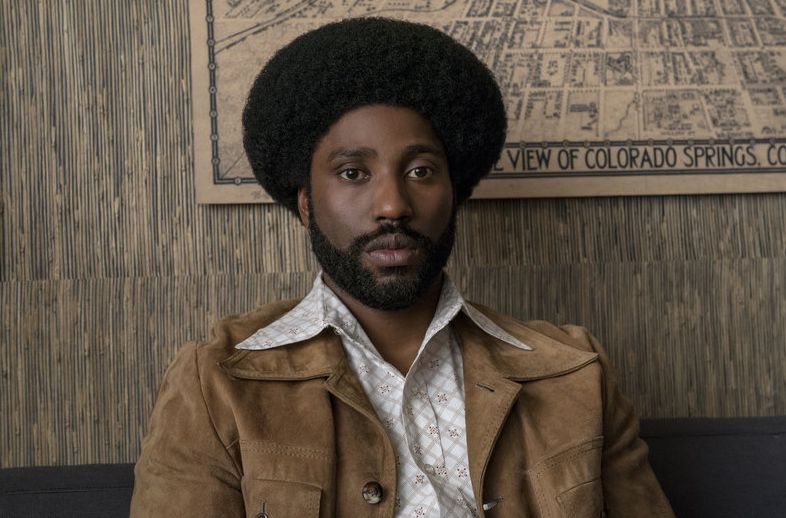
Even Ron is stuck in the same tar pit. As he made inroads in taking down the Klan chapter, Lee always has this sense of futility simmering beneath projected through Ron’s uneasiness. This futility actually counts as a negative for the film as it feels like Lee was pulling his punches and looking to place a giant white hat on the complex police force.
Nonetheless, Washington is a magnetic presence on screen. The easy to appreciate humor and cool charisma (not at his dad’s level yet) come in droves. The quieter moments of angst that underpin the duality of his existence confirm we are watching a strong performance. Consider the scene where he tells the story of the short-lived friendship of a black kid and white kid, where Lee is confident enough to give us a close-up of Washington so his eyes do the heavy lifting. It’s a level of authority that pays of only when granted to superb thespians.
The handling of Driver’s Flip sees Lee in somewhat new territory when it comes to dealing with race and identity. There is another layer of angst here. When placed between Ron and the fascist Klan members, Flip is forced to put his whiteness in perspective and examine his own identity as a Jewish American, something he had always taken for granted.
I can’t say that there is any particular reason to presume Flip is Jewish but one of the Klan members harbors an undying suspicion of him, even demanding to verify his circumcisions status. The film is at its edgiest in these moments, which is surprises upon reflection. Yes, there was a scene of racial profiling and harassment were my heart was in my mouth for a second, but the consistent thread of dread arose because the true identity of a Jewish man may have been discovered.
This beat is the mark a director who has crafted a way to widen a net that has defined his career. He uses Flip as a more subtle and incisive means to deliver his politics. By subtle, I mean compared to soapbox sermons we expect from Lee joints. Aside from the aforementioned appearance of Kwame Toure (Corey Hawkins), Patrice reminds us time and time again her life will be defined by the struggle. Then there’s also the moment we spend (with Harry Belafonte, no less) recounting a harrowing offcut of America’s racial strife.
In line with the theme of duality, Lee’s passionate polemics are seemingly matched by the racist rhetoric. For every affirmative declaration from Patrice, there is a racist tirade in tow. We never mistake this for balance though. A fair chunk of the onscreen racism is meant to be mocked. Lee wants us to deride America for once hailing 'Birth of a Nation' as a masterpiece written in lightning. He trolls persons who operate on asinine racial stereotypes and I was all too eager to jump on his wavelength.
Trolling and words are Lee has to throw at this bleak world. And his lens, which he uses to remind us that this world remains unbalanced. He employs weird off-kilter angles to enforce this. For all the levity, Lee’s deft storytelling never leaves us in doubt about the state of America. The KKK’s perversion of the most sacred of Christian symbols, the cross, is to be reviled and its use in the film is chilling. Even more chilling is his use of the footage from the chaos in Charlottesville after that fascist rally.
'BlacKkKlansman' just might be Lee’s best film. Sue me. It offers so much whilst remaining seamless; immense awareness, truth to power, hilarity, thrills, sweet Blaxploitation homages and his trademark dolly shot as the cherry on top. Lee hasn’t lost his sense of urgency. He is certainly more playful, but an anger still rages within. How could it not, almost three decades after 'Do the Right Thing', with an arguably more divided America. Thankfully one thing also remains the same, the power of the man behind a lens.
